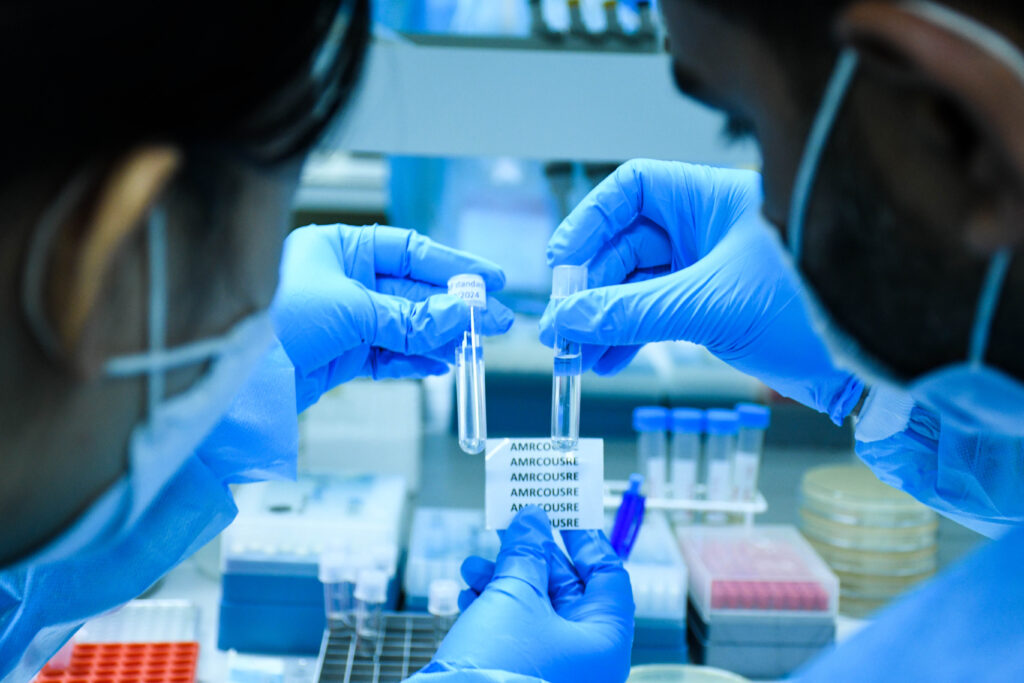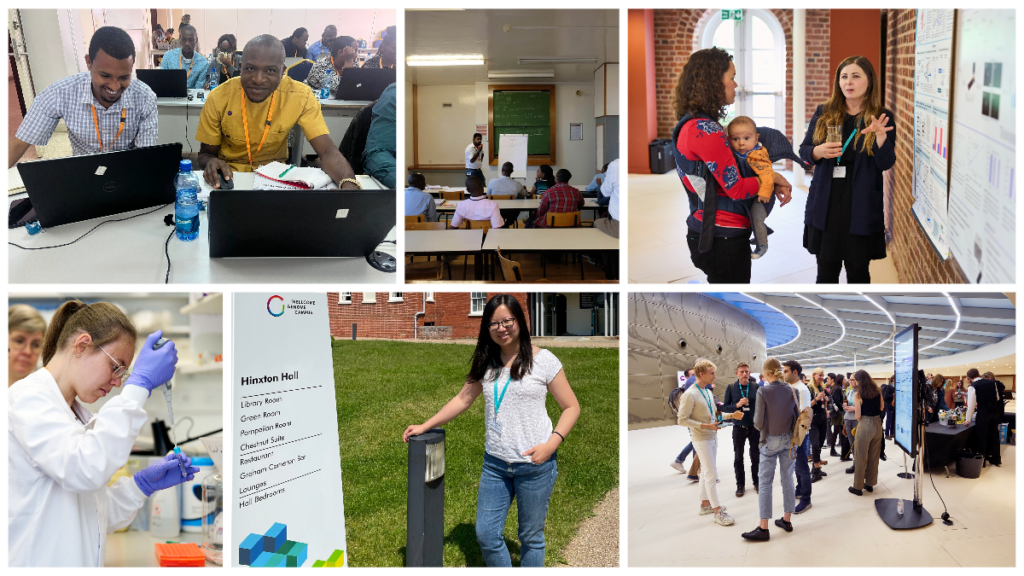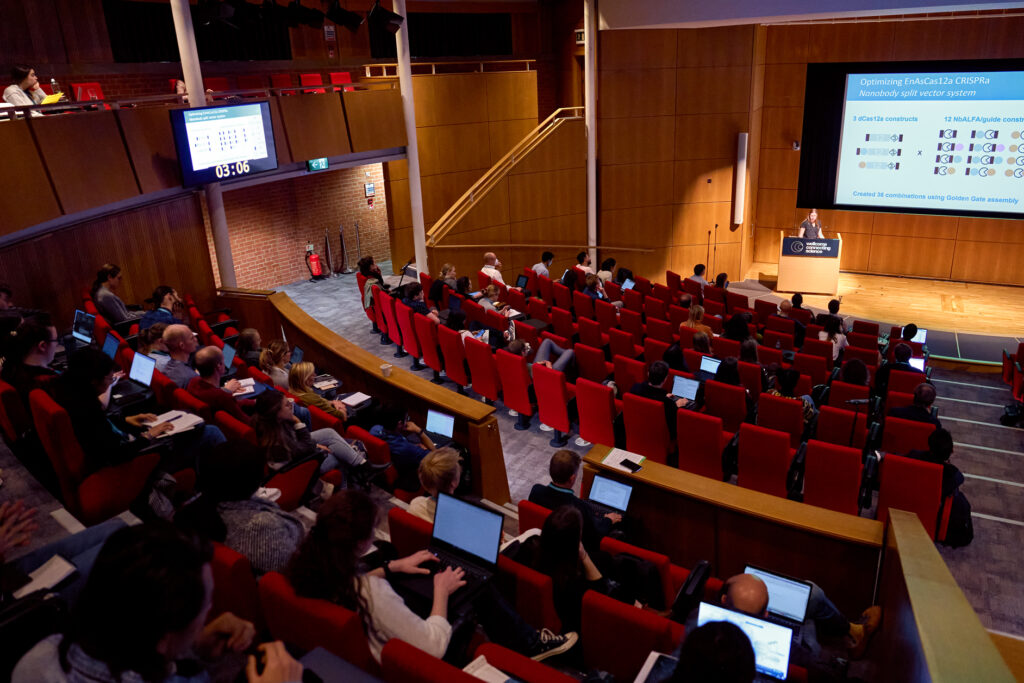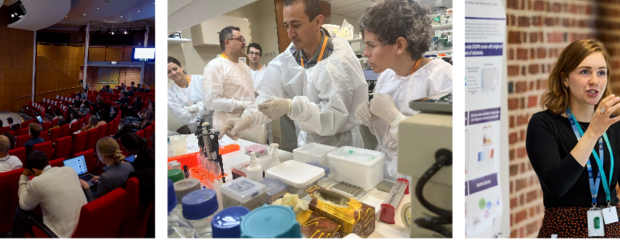
Research and innovation for human health: How education underpins discovery science!
Why investing in your professional education matters
Professional education plays a fundamental role in accelerating discovery science, supporting the translation of genomics into clinical practice, and delivering improved healthcare for patients.
Emerging areas of genomics research and new tools and technologies are enabling us to push the boundaries in life science. These advances are shaping a better future for human health through enhanced disease prediction and surveillance, better diagnostic services, and the development of safe and effective therapies.

The lack of trained genomics scientists is one factor that is slowing down the translation of technological innovation and genomics knowledge into effective healthcare solutions for patients. There is a critical need to scale up genomics workforce capacity, across the globe, to drive groundbreaking discoveries in human health.
Learning, training and education are key to addressing capacity issues and driving genomics to reach its full potential; meaning that professional development is an important aspect of every career, at every stage, whether you are a PhD student, researcher, or a clinical professional.
Throughout my career in genetics education I’ve seen how training and development can improve knowledge and skills, and the impact this has on the individual. Attending training days, week-long courses, or knowledge sharing conferences, changes the way we approach things and enables us to understand new concepts, as well as connect with different people, who have the potential to make a significant difference to our career and the science we’re working on.
Dr Michelle Bishop, Associate Director of Learning and Training, Wellcome Connecting Science, UK
What finding the right learning and training opportunities can do for your career
Finding training and knowledge platforms that facilitate networking and foster environments for sharing experiences, finding collaborators, and the formation of communities of practice will not only empower your career, but also offer extended benefits to your laboratory or institution.

How can professional education with Wellcome Connecting Science (WCS) deliver lasting human health impact?
From rare diseases and mitochondrial medicine, to immunology and the evolution of cancer, our learning and training programme supports scientists working to understand the mechanisms of disease, and how to improve human health through genomics-based approaches.
We integrate practical training, professional skills development, and networking opportunities, providing you with a comprehensive genomics education infrastructure that bolsters your PhD studies, your research, or clinical work.
Click below to hear from Dr Michelle Bishop, Associate Director of Learning and Training, on what makes the Connecting Science programme valuable to careers:
Hear all the talks from our sponsored AAAS Science webinar - Reaching beyond the science in genomics education: Connecting scientists to spark innovation and discovery.
Human health highlights for 2024
This year, our Cancer Evolution: from Genomes to Ecology conference, returns to Hinxton Hall Conference Centre for the first time since 2019. Designed for scientists working across evolutionary biology, cancer research, and clinical practice, this is an excellent opportunity to reconnect with global peers in-person, and exchange the latest insights from across the field.
Our brand new conference focusing on human immunology takes place in May 2024. Now open for registrations, there are also opportunities for researchers and clinicians working across many disciplines in immunology and genetics, to present their own research insights.
This meeting will foster novel thinking on approaches to bridging knowledge gaps, shaping the future of the field.

Beyond 2024
In 2025, we will host our first conference specifically addressing the health of women, and the genomics tools and techniques accelerating advances in this field.
How can Wellcome Connecting Science learning and training benefit you?
- Training focused on the latest genomics tools and techniques; accelerating your research;
- Learn from globally leading scientists, in bespoke teaching environment that fosters dialogue and sharing;
- Access research at the forefront of genomics understanding to spark new thinking;
- Collaborations: network with peers and form lasting relationships that increase capacity and productivity, supporting your potential for acquiring future funding;
- Opportunities to build your professional profile on a global stage.
My message to the scientific academic community is: be open to allow your students or peers to attend research meetings and structured training, as you may be surprised at what additional value may come from it.
Dr Michelle Bishop, Associate Director of Learning and Training, Wellcome Connecting Science, UK
To stay up to date with all our learning and training courses and conferences focusing on human health, please complete this form.

